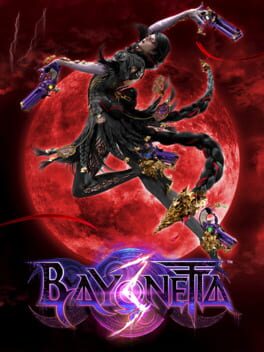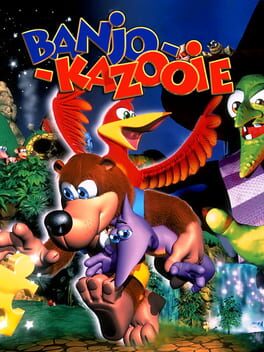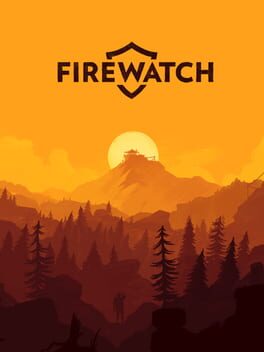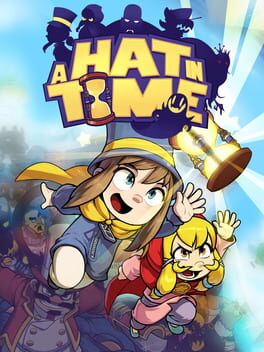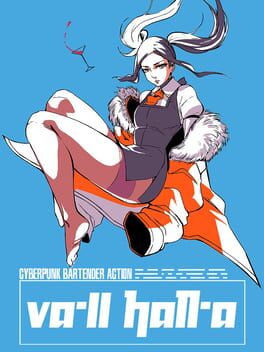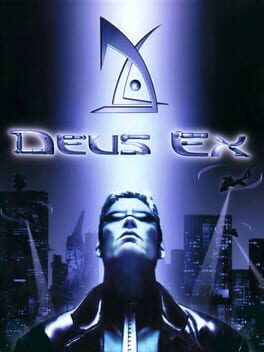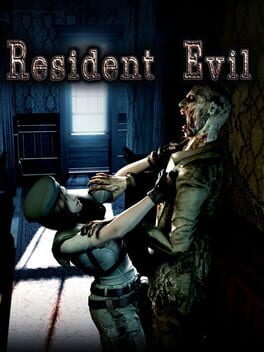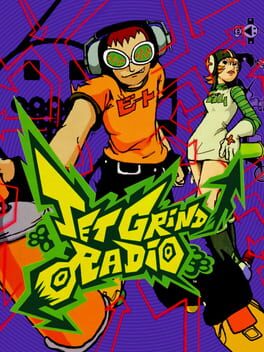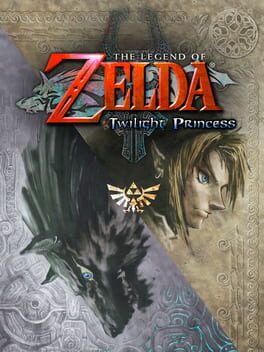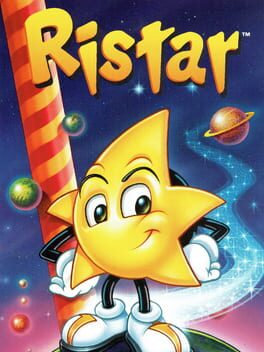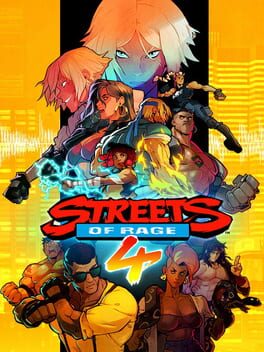chump
2022
Backloggd phenomena report: you ever notice a discrepancy between a game's average rating and what the top reviews have to say about it? Both prior Bayonettas are pretty good examples of this. Reading through the original's reviews would have you convinced it's one of the highest rated games on the site, but it's sitting at a good-but-not-great 3.9/5. Conversely, its sequel, by all accounts, must've featured a puppy getting stiletto'd in the opening cutscene or something, but it's got a more impressive 4.1 average. Personally, I chalk this up to the casual-hardcore dichotomy. Leisurely gamers make up a larger portion of the collective unconscious, but passionate players are more likely to both write in-depth analyses and spend time voting up reviews that they agree with. I don't claim to be an expert on high-level gameplay or anything (my 'about me' on here isn't at all facetious) but I like to think of myself as someone who can see both sides of the spectrum, and I can at least anecdotally vouch for my theory being correct here. My appreciation for the first game's nuances only grows with each revisit, but, at the same time, I have several friends that consider it among their favorites who were surprised when I told them that you can continue a combo after dodging. On the other hand, I remember genuinely enjoying 2's story the first time around, but I wasn't able to finish a replay in preparation for this...
Bayonetta 3 manages to break this pattern, apparently finding common ground with its relatively low (at time of writing) 3.7 average and generally underwhelmed top reviews. Obviously, this doesn't actually mean anything, but, to me, it's representative of how so many decisions in here bafflingly appeal to neither audience. Demon Slave, the game's major new mechanic, had potential in expanding Bayonetta's moveset by giving her another avenue to creatively set up finishers, but every kaiju's overbearing nature, not to mention the fact that enemies don't seem to respond to them at all, make them feel like just another strong attack. This wouldn't have mattered as much if they at least looked cool in action, but it's usually hard to tell what they're even doing- the camera zooming in on Bayonetta even when a demon gets the encounter's final blow is a telltale sign that this wasn't thought through. They also mean that enemies lack an intimidation factor, a pitfall that could've been similarly avoided to some degree if they weren't incredibly generic visually. This extends to bosses, which primarily just feel like big enemies- at no point during a Bayonetta game should I be surprised that I got a boss bonus at the end of a verse. And there's also the smaller stuff. Retaining 1's lack of interest in an intelligible narrative without any of the energy that made its cutscenes at least watchable. The multiverse setting, which I (perhaps generously) attribute to bad timing and not any kind of trend chasing, is, at times, novel, but it lacks the showmanship of a Psychonauts or a Travis Strikes Again to really make its worlds exiting from a casual perspective. But far and away the most insulting is the implementation of the gimmick sections. A staple of high-action games that, at their best, satisfy both pros (by offering pacing reprieves and remixes of core mechanics) and casuals (by offering memorable, eye-catching spectacle) but here don't even attempt to do either. Instead, they're boring, slow-moving, time-consuming, utterly bizarre affairs that make you wonder if the minds behind them even knew what game they were working on.
But, against all odds, I ended up enjoying myself. It could just be because Bayonetta's core moveset is so great that I'll never outright dislike any of her games, but I think the alternate weapons deserve their due credit. Nearly all of them are genuinely remarkable in how outlandishly they're designed, completely distinct yet somehow perfectly in tune with how our Umbran Witch operates, and ultimately just great fun to mess around with. Maybe the true lesson to be learned here is that if you throw enough darts at the board, you're bound to get at least one bullseye. Considering she's just received her own prequel spinoff, Bayonetta is the leading lady of a capital-F franchise now, and I'd much rather see her flinging ideas about haphazardly than indulging in another round of playing it safe.
Bayonetta 3 manages to break this pattern, apparently finding common ground with its relatively low (at time of writing) 3.7 average and generally underwhelmed top reviews. Obviously, this doesn't actually mean anything, but, to me, it's representative of how so many decisions in here bafflingly appeal to neither audience. Demon Slave, the game's major new mechanic, had potential in expanding Bayonetta's moveset by giving her another avenue to creatively set up finishers, but every kaiju's overbearing nature, not to mention the fact that enemies don't seem to respond to them at all, make them feel like just another strong attack. This wouldn't have mattered as much if they at least looked cool in action, but it's usually hard to tell what they're even doing- the camera zooming in on Bayonetta even when a demon gets the encounter's final blow is a telltale sign that this wasn't thought through. They also mean that enemies lack an intimidation factor, a pitfall that could've been similarly avoided to some degree if they weren't incredibly generic visually. This extends to bosses, which primarily just feel like big enemies- at no point during a Bayonetta game should I be surprised that I got a boss bonus at the end of a verse. And there's also the smaller stuff. Retaining 1's lack of interest in an intelligible narrative without any of the energy that made its cutscenes at least watchable. The multiverse setting, which I (perhaps generously) attribute to bad timing and not any kind of trend chasing, is, at times, novel, but it lacks the showmanship of a Psychonauts or a Travis Strikes Again to really make its worlds exiting from a casual perspective. But far and away the most insulting is the implementation of the gimmick sections. A staple of high-action games that, at their best, satisfy both pros (by offering pacing reprieves and remixes of core mechanics) and casuals (by offering memorable, eye-catching spectacle) but here don't even attempt to do either. Instead, they're boring, slow-moving, time-consuming, utterly bizarre affairs that make you wonder if the minds behind them even knew what game they were working on.
But, against all odds, I ended up enjoying myself. It could just be because Bayonetta's core moveset is so great that I'll never outright dislike any of her games, but I think the alternate weapons deserve their due credit. Nearly all of them are genuinely remarkable in how outlandishly they're designed, completely distinct yet somehow perfectly in tune with how our Umbran Witch operates, and ultimately just great fun to mess around with. Maybe the true lesson to be learned here is that if you throw enough darts at the board, you're bound to get at least one bullseye. Considering she's just received her own prequel spinoff, Bayonetta is the leading lady of a capital-F franchise now, and I'd much rather see her flinging ideas about haphazardly than indulging in another round of playing it safe.
1998
The anti-Mario 64: Banjo's moves are entirely situational, self-explanatory, and devoid of momentum. Collecting jiggies usually boils down to solving a simple contextual puzzle rather than utilizing any kind of creative platforming. As a result, there's hardly a difficulty curve or any implicit progression... but it doesn't matter, because Banjo-Kazooie's total mastery over its own strengths and weaknesses means it's fully confident in being utterly carried by its level design. The every-nook-and-cranny mindset is the very foundation of the collectathon, and yet I've never seen it done better than in the game that more or less created the genre. Despite how little there is to the platforming, every in-game structure feels multipurpose. Anything that can be jumped on top of also hides a collectible behind or underneath it, any piece of architecture has several entrances that you have to consider. This philosophy peaks in Mad Monster Mansion, where not only does the main building have multiple ways into multiple rooms on multiple floors, but the hazardous thorn bushes outside double as pathways after receiving Mumbo's transformation. If anything, Kirkhope's soundtrack doesn't get enough credit for establishing this sense of interconnectivity. Plucky platforming tunes seamlessly transition into Rare's signature unexpectedly moody ambience, impossible to imagine the game without. The more unsung hero is the game's usage of verticality. Nearly every level has some kind of player-led buildup to reaching the area's summit, eventually bestowing a way to scout out points of interest that you might have missed and, more importantly, personal satisfaction. The end result is a series of beautifully concise dioramas, each taking about an hour to fully complete and best experienced one-a-day. The well-meaning but far too convoluted Click Clock Wood is the only world I'd label as less than 'great,' but it's not enough to put a significant damper on the rest. With how lukewarm I've been on nearly every recent 3D platformer, I'd been beginning to fear that my love for them might've left me, but all it took was a classic to remind me it's still far and away the best genre. Maybe not as mindblowing as it was in the 90s but no less of a supremely enjoyable experience. Bring 'em back, Phil.
2016
This review contains spoilers
Real life isn't satisfying. Going out into the woods for an entire summer doesn't mean all of your personal woes automatically get solved. Obsessively pursuing what you perceive to be a conspiracy against yourself doesn't mean you get a neatly-wrapped conclusion. Fires don't wipe the land perfectly clean, but instead leave suffocating ash and smoke in their wake. Going out of your way to fix a particular problem more often than not just leaves you with more. This is a theme that I could see being adapted brilliantly as a video game, but the problem is that Firewatch doesn't try to emulate real life, instead it tries its hardest to be a movie. Beyond just being a walking simulator about the great outdoors where you're pretty much only allowed to traverse man-made paths, the game skips through all of the "uninteresting" parts of your job as a lookout to make sure something important's happening at all times. It's so sanitized, so free of anything that's slightly inconvenient or boring, that you really can't call it anything but satisfying, and therefore can't call it anything but a failure at getting its point across as a video game. I'll fully admit that my rating here is entirely for the concept and atmosphere. It puts the barest amount of effort in and still manages to be unnerving, which is why it's so frustrating. It really seems like these guys wanted to make a movie, and they should have! But then again, if they did, they probably would've had to rewrite Delilah to be a real person with a real personality instead of just another endless dispensary of sarcastic quips. Probably not worth the effort.
2017
It's a subpar platformer propped up by about a dozen coats of polish. After thinking about it, my main issue is with the game's moveset which, although it may seem to be the opposite at a surface level, is actually pretty restrictive. Let me put it this way. In the air, you have three options: a double jump, a dive, and a flip. However, the flip can only be done directly after a dive, and the double jump can't be done if you've already used a dive. What this means is that if you want to use all of your moves in a single jump, there's only one order you can do them in: double jump -> dive -> flip. This ends up making it so that jumps can't be designed in a way that would require you to use your moves in a different order, leading to just the same set of inputs over and over again for the entire game. What's more inexcusable is the fact that it doesn't even attempt any original mechanics, it's all just so basic. Moving platforms, springs, ropes to swing on, there's nothing new here to figure out. Combine this with the poor moveset and it creates a perfect storm of frustratingly low difficulty. I'd have a hard time believing anyone who has played a 3D platformer before would struggle with any part of this game, and it's not like it even punishes you for dying in the first place. To top it off there's also the badge and yarn systems. Neither of them are well-thought-out at all and their usefulness as collectables ends after about a fifth of the game, which ends up making them feel like huge misses in an understanding of what makes these types of games good.
The counterargument to my thoughts here would be that the game isn't supposed to be a platformer first and foremost and instead an adventure game where the main appeal is reaching varied environments and meeting a unique cast of characters, but I'd disagree with this as well. Something like Psychonauts or Super Mario Galaxy puts the actual platforming in the backseat in favor of interesting experiences, which I'm fine with, but A Hat in Time goes even further and ends up crossing a line. The platforming here feels like a formality, like the sequence of events was thought up first and the platforming is just there to fill in the gaps. Pyschonauts has unique mechanics depending on whose brain you're currently occupying, and Super Mario Galaxy consistently uses its outer space setting to vary up the gameplay. Take away the presentation from A Hat in Time and every world is the exact same, and that's my bottom line. The particle effects, the loading screen art and other 2D assets, the soundtrack, the UI. It's all fantastic but none of it works in service of the goal of creating a good platformer.
The counterargument to my thoughts here would be that the game isn't supposed to be a platformer first and foremost and instead an adventure game where the main appeal is reaching varied environments and meeting a unique cast of characters, but I'd disagree with this as well. Something like Psychonauts or Super Mario Galaxy puts the actual platforming in the backseat in favor of interesting experiences, which I'm fine with, but A Hat in Time goes even further and ends up crossing a line. The platforming here feels like a formality, like the sequence of events was thought up first and the platforming is just there to fill in the gaps. Pyschonauts has unique mechanics depending on whose brain you're currently occupying, and Super Mario Galaxy consistently uses its outer space setting to vary up the gameplay. Take away the presentation from A Hat in Time and every world is the exact same, and that's my bottom line. The particle effects, the loading screen art and other 2D assets, the soundtrack, the UI. It's all fantastic but none of it works in service of the goal of creating a good platformer.
2019
This review contains spoilers
There's a lot to discover out there- or, there was, at one point, but it's all been discovered since, hundreds of thousands of years before you even hatched. Games like this can offer recluse from the harsh, pre-explored reality that we live in, so it's disappointing how often Outer Wilds shifts focus away from its naturally occurring astronomical mysteries and towards its ancient alien race that has already solved all of them. It's not about monitoring the cyclones on Giant's Deep and reasoning out that some push and some pull; it's about trying to get into an observatory that houses a model of the phenomenon. It's not about sending out a drone to take pictures of an angler and realizing that its eyes are glazed-over; it's about finding the skeleton in the Sunless City and the accompanying biologists' report that says that they're blind. Of course, you can figure out any of these things on your own, but the 22-minute timer actively discourages the extensive trial-and-error that's necessary to evoke a true feeling of discovery, effectively telling you to try visiting a different planet if you weren't able to make any progress on your last loop. The Nomai are undeniably essential as a way to tie all of the cool space stuff together, and their story is certainly worth telling, but I wish their findings weren't so well-preserved. There's an important distinction between discovering and just plain learning, best illustrated here by the Tower of Quantum Trials, which feels like the tutorial level of a Portal-inspired first-person puzzler rather than a part of a wider world. The gap between what's plainly written out for you (blind fish) and how you can use that information to reach your goal (move slowly) is pretty small, and it's only made smaller by the fact that your ship log neatly summarizes all of the important bits for you. What I crave most from a game like this is the feeling of being stuck, or, more accurately, of overcoming said stuckness, and Outer Wilds just doesn't deliver in that regard, and, as a result, I was never as into it as I would've liked. I kept waiting for it to stonewall me, for that moment where I felt like I'd exhausted every possible avenue, but it never came.
And yet... the game just works anyway. Contrary to how dour that first paragraph reads, I do enjoy learning (albeit less than discovery) especially when it's done this well. Every loop brings a new revelation, and not a single fact about the universe feels forced or out of place. I'd go as far as to say this is the most consistent set of internal logic that I've ever experienced in a video game, and it knows it, considering how much joy it takes in hiding things in plain sight. Of course that fog planet you kept seeing was the quantum moon all along. Of course Ash Twin runs out of sand eventually. Of course the Tower of Quantum Knowledge can get sucked into the black hole. Of course you can't land your ship on the sun station, why do you think it's marked with the same pattern as all of the other warp spots? The amount of mileage it gets out of being a game where you can't interact, only observe (wink, wink, nudge, nudge) is staggering, and what makes many of these world mechanics effective is that they're decidedly un-gamey. Most other games would've let you know in some way when you're being properly shielded by a jellyfish in order to combat I-tried-the-right-solution-but-it-didn't-work-syndrome, but the fact that you don't get any feedback and just unceremoniously pass through the electricity barrier makes it that much more satisfying. It seems like it would be great fun to watch someone else play this game, smirking internally as they walk right past something that you already know is cosmically important, and laughing hysterically as they destroy their ship by ramming headfirst into a planet at 400 m/s. Because it's hard to imagine this game going anywhere without committing to the unforgiving physics of outer space- aside from the ship's autopilot system, arguably, no corners are cut here, culminating in an environment that feels appropriately cutthroat. Get too close to the sun and you're screwed, drift too far from your ship and you're screwed, forget to stop and refuel your jetpack and you're screwed. It's a nice reminder that we as humans (or as Timber Hearthians) have no real way to conceptualize true three-dimensional movement, and, as a result, arriving anywhere safely can often feel like a small miracle, which leads to the game's best moments. Carefully following the gravity crystals to reach the Hanging City for the first time, struggling to land on the quantum moon while simultaneously viewing a picture of it, and, of course, that final trek- replaying the end of loop music during was nothing short of brilliant. I'm much more mixed on that overly artsy indie epilogue, but getting to the Eye at last was the perfect capstone for an experience that deserves its reputation as a universal recommendation... even if my personal solar system wasn't as shattered as many others' were.
And yet... the game just works anyway. Contrary to how dour that first paragraph reads, I do enjoy learning (albeit less than discovery) especially when it's done this well. Every loop brings a new revelation, and not a single fact about the universe feels forced or out of place. I'd go as far as to say this is the most consistent set of internal logic that I've ever experienced in a video game, and it knows it, considering how much joy it takes in hiding things in plain sight. Of course that fog planet you kept seeing was the quantum moon all along. Of course Ash Twin runs out of sand eventually. Of course the Tower of Quantum Knowledge can get sucked into the black hole. Of course you can't land your ship on the sun station, why do you think it's marked with the same pattern as all of the other warp spots? The amount of mileage it gets out of being a game where you can't interact, only observe (wink, wink, nudge, nudge) is staggering, and what makes many of these world mechanics effective is that they're decidedly un-gamey. Most other games would've let you know in some way when you're being properly shielded by a jellyfish in order to combat I-tried-the-right-solution-but-it-didn't-work-syndrome, but the fact that you don't get any feedback and just unceremoniously pass through the electricity barrier makes it that much more satisfying. It seems like it would be great fun to watch someone else play this game, smirking internally as they walk right past something that you already know is cosmically important, and laughing hysterically as they destroy their ship by ramming headfirst into a planet at 400 m/s. Because it's hard to imagine this game going anywhere without committing to the unforgiving physics of outer space- aside from the ship's autopilot system, arguably, no corners are cut here, culminating in an environment that feels appropriately cutthroat. Get too close to the sun and you're screwed, drift too far from your ship and you're screwed, forget to stop and refuel your jetpack and you're screwed. It's a nice reminder that we as humans (or as Timber Hearthians) have no real way to conceptualize true three-dimensional movement, and, as a result, arriving anywhere safely can often feel like a small miracle, which leads to the game's best moments. Carefully following the gravity crystals to reach the Hanging City for the first time, struggling to land on the quantum moon while simultaneously viewing a picture of it, and, of course, that final trek- replaying the end of loop music during was nothing short of brilliant. I'm much more mixed on that overly artsy indie epilogue, but getting to the Eye at last was the perfect capstone for an experience that deserves its reputation as a universal recommendation... even if my personal solar system wasn't as shattered as many others' were.
2000
Third Final Fantasy I've played, and this one was a pretty big mixed bag for me, unfortunately. When it's on, it's really on. Although it doesn't attempt anything remotely as interesting as 6's prolific fusion of story and battle mechanics or 7's distinct, offbeat humor and interactive fiction elements, it's hard to deny that most of its story is anything less than a resounding success. What the game excels at most are character interactions. They're used expertly for both comedic and dramatic purposes- the naive Vivi being lectured by the just-as-naive-but-slightly-more-emotionally-intelligent Eiko on the other party members' relationships and the quiet bombshell question that Dagger drops on Zidane in Maiden Sari regarding his personal motivation were the respective standouts from my perspective. A bold decision that might not seem significant is the game's consistent willingness to cut characters out for hours at a time when they're not important to what's currently going on. Steiner, for example, is just gone for huge chunks of the story after being introduced, which really works well with the stage play motif that surrounds the game. Adding to this, the story also starts off as a briskly paced, wonderfully small scale sequence of events that mostly has the party traveling from interesting location to interesting location. The game's initially focused on having the characters learn about themselves, each other, and the conflict that they're currently involved in rather than learning how to defeat some intergalactic being.
But, in the end, despite how good the game is at getting your hopes up, it has Final Fantasy in the title. I don't care about Kuja's plan to merge the planets and kidnap the Sandy Claws or whatever. Despite eating up so much of the storyline it's simply not interesting, and it also takes what should be a quiet, personal narrative and regresses it into standard sci-fantasy schlock. This disappointing third act turn of events and also some weird, seemingly unfinished details like certain side characters being built up with zero payoff mean that the narrative isn't perfect, and therefore it has to lean on its gameplay to at least some degree. And man, maybe it's just me, but this game is just so unenthusiastic about being an RPG. What feels like the vast majority of fights, at least in the first half of the game, are scripted, mid-cutscene bouts that you're not really supposed to lose. The amount of time spent in areas containing random encounters is purposefully minimized. Trance is the only unique part of the battle system but it's not well thought out at all and it adds absolutely nothing. The bosses are uninspired, usually being some nondescript creature being plopped in front of the party with no buildup- gone are the days of Jenova, of Shinra higher-ups, of ghost trains. There's nothing to their fights mechanically, either. I can think of only one boss in the entire game that isn't just one target that you can attack, and likewise only one that even reacts to your actions. The sole semblance of a saving grace, gameplay wise, is the abilities system. It's clever in more ways than one, as it encourages you to actually think about which equipment you put on and also gives you a nice feeling of growing your collection of abilities, but it's not enough to really affect anything in a major way. The game's also extremely easy. Final Fantasy 7's low level of difficulty gets a pass because of how enjoyable it is to mess around with the Materia system (although that has its own issues that I won't get into here), 9 does not, especially considering it's heralded as a throwback to the older games in the franchise. The story clashes, and the gameplay clashes. No matter how much I wanted to love it, Final Fantasy 9 has less to offer than either of the other games in its series that I've played before it.
But, in the end, despite how good the game is at getting your hopes up, it has Final Fantasy in the title. I don't care about Kuja's plan to merge the planets and kidnap the Sandy Claws or whatever. Despite eating up so much of the storyline it's simply not interesting, and it also takes what should be a quiet, personal narrative and regresses it into standard sci-fantasy schlock. This disappointing third act turn of events and also some weird, seemingly unfinished details like certain side characters being built up with zero payoff mean that the narrative isn't perfect, and therefore it has to lean on its gameplay to at least some degree. And man, maybe it's just me, but this game is just so unenthusiastic about being an RPG. What feels like the vast majority of fights, at least in the first half of the game, are scripted, mid-cutscene bouts that you're not really supposed to lose. The amount of time spent in areas containing random encounters is purposefully minimized. Trance is the only unique part of the battle system but it's not well thought out at all and it adds absolutely nothing. The bosses are uninspired, usually being some nondescript creature being plopped in front of the party with no buildup- gone are the days of Jenova, of Shinra higher-ups, of ghost trains. There's nothing to their fights mechanically, either. I can think of only one boss in the entire game that isn't just one target that you can attack, and likewise only one that even reacts to your actions. The sole semblance of a saving grace, gameplay wise, is the abilities system. It's clever in more ways than one, as it encourages you to actually think about which equipment you put on and also gives you a nice feeling of growing your collection of abilities, but it's not enough to really affect anything in a major way. The game's also extremely easy. Final Fantasy 7's low level of difficulty gets a pass because of how enjoyable it is to mess around with the Materia system (although that has its own issues that I won't get into here), 9 does not, especially considering it's heralded as a throwback to the older games in the franchise. The story clashes, and the gameplay clashes. No matter how much I wanted to love it, Final Fantasy 9 has less to offer than either of the other games in its series that I've played before it.
Pretty much everything I hate about video game writing wrapped up in one package. Constant callbacks to jokes that weren't funny in the first place, out of place references to memes and pop culture, anime-esque mannerisms and personality traits, sex being brought up so frequently that things just become unbearably awkward, you name it. There are some decent nuggets of worldbuilding in here, but they're absolutely not worth weeding through the terrible dialogue to find. Speaking of the dialogue, that's all the game is. I'm sure how you prepare the drinks has an impact on the story seeing as there are multiple endings, but it sure doesn't feel like anything in the game actually responds to your decisions when you're playing, and I'm not going to sit through it again to try to find out. It offends me that this game thinks it's worthy of making multiple references to Seinfeld.
2000
Its unwavering commitment to letting players do things their way is what makes it great; its meticulous level design that really forces players to look at their surroundings as if they were really there is what makes it one of the most fulfilling RPGs ever. Deus Ex is a long string of kept promises, from the story premise of taking down the world government, bolstered by great writing, a dynamic soundtrack, and horrible but somehow tonally appropriate graphics and voice acting, to the genius use of permanency in the upgrade system that really puts the 'immersive' in 'immersive sim.' If there's a complaint to be made here besides some pretty sizeable balance issues, it's that it does get weaker the longer it goes on- the final few missions feel like they bleed together and certain third-act plot elements could've been handled much better- but it's worth it when you realize it's all been a wonderful set up for perhaps the only good end-game player decision ever. Grandiose, mature, and dare I say thought-provoking, long before the movie games of the modern age began to convince the world that these things couldn't be achieved without sacrificing player control.
2002
The rare and truly, truly special occasion where each and every element works perfectly in tandem to fully realize a game's potential. The gratifyingly punishing mechanics, the terrific sound design, art direction, and camera angles, the grounded yet still interesting puzzles, the ingenious map design leading to a healthy amount of very purposeful backtracking, the slow drip of story clues, and yes, even the control scheme all come together to create not only the pinnacle of survival horror, but perhaps the pinnacle of video games altogether. Every second spent playing Resident Evil (2002) is a second of decision-making, a second of rapidly building anticipation and curiosity, and a second of experiencing an unmatched atmosphere. It's a game that everyone who's at all interested in the medium needs to play, for real.
Since its inception the Zelda series has coasted on getting the player to ask two questions: "What do I do?" and "How do I do it?" In Breath of the Wild, the first question is almost completely absent. This isn't necessarily a problem, as the game markets itself heavily on the second. However, while the "how do I do it" has brief flashes of greatness, it quickly fades away into nothing. The first time you defeat a guardian, it's exhilarating. Once you master parrying lasers, which doesn't take long, it becomes tiresome. Planning out how to take out a band of bokoblins is engrossing initially, but realizing that it'll only result in a dent in your stash of good weapons and the enemies respawning in a few days makes it more of a chore than anything. The champions' abilities are the worst offenders- each of them simply makes the gameplay less complex, the opposite of what upgrades should do. Revali's gale makes figuring out how to gain height almost a non-issue, avoiding damage is trivial once you have dozens of hearts, a second life, and a shield than can block any blow, and Urbosa's fury is just a win-this-fight-for-me button. They wouldn't even be that bad if there was some task you had to do to earn using them, but it's bafflingly just a cooldown.
In short, Breath of the Wild is filled with great "firsts." The first time you find one of the dragons just flying around the open sky, it's mesmerizing, but it becomes less so when you realize that it's one of the few unique entities in the massive world that you can just stumble upon. I feel like these first experiences are why people connect with the game so much- I'd consider it a great game too if the entire experience was like the first few hours. This definitely seems like an impossible task, but it's also the reason I'm optimistic about the fact that Breath of the Wild is getting a direct sequel. I just hope Nintendo takes some risks with the next one.
In short, Breath of the Wild is filled with great "firsts." The first time you find one of the dragons just flying around the open sky, it's mesmerizing, but it becomes less so when you realize that it's one of the few unique entities in the massive world that you can just stumble upon. I feel like these first experiences are why people connect with the game so much- I'd consider it a great game too if the entire experience was like the first few hours. This definitely seems like an impossible task, but it's also the reason I'm optimistic about the fact that Breath of the Wild is getting a direct sequel. I just hope Nintendo takes some risks with the next one.
2000
I'm not sure what's more insane, the fact that this was pretty much Naganuma's first soundtrack or the fact that he hasn't really done much after this came out. But everyone already knows how much of a stylistic gem Jet Set Radio is, so instead I'll go into some of the lesser appreciated details that makes it a great game and try to keep my humming the bassline to a minimum. It's a game that sucks until you're good at it, which is probably the best kind of game there is. It's a real shame that the definition of "intuitive" has switched to "stuff that I get instantly" from "stuff I can pick up on easily," because I much prefer the latter. I really don't want to know everything right off that bat- the act of learning how to do things is what I'm interested in, and is one of the biggest reasons why I like video games as a medium in the first place. Jet Set Radio's rival encounters aren't only an engaging way to make you feel like you're expanding the size of your gang but also a clever method of cluing you in to shortcuts and tricks that you might not have figured out yourself. It's really fulfilling to observe them in a contained setting and then try them out in a real mission, and it's also exactly how watching someone else skate would play out in real life. The maps are initially given to you in bits and pieces, making it satisfying to use your full mastery of the physics and controls during the final few missions which each contain a full map instead of just a section. DJ Professor K is also a particularly genius inclusion. He's great at establishing and then perpetuating the level of energy that the game requires, but more importantly narrates in an aggressively present tense, propping up the setting and your active role in the story in a way you really don't see that often. I like this game too much to do anything but gloss over its pretty glaring problems. The enemies and health system are underdeveloped (they're hazards more than enemies and most of the time your best option is just tanking damage), there's a decent amount of technical problems (there's zero difference between walls you can and can't wall run on), and one really misplaced flashback section (not to mention the lamest final boss ever conceived). By all accounts, it meets my definition of a flawed masterpiece. But who cares? ROCK THAT SHIT, HOMIE!
What made Ocarina of Time so special? I don't have a good answer to that question, and neither did Nintendo in 2006. Most people would agree that Link meeting Zelda for the first (and pretty much only) time in the castle courtyard is where Ocarina really hits its stride, but trying to discern why that moment sticks out is much more difficult. The most obvious potential answer to this is its brevity- the game's called 'The Legend of Zelda,' so the fact that your encounter with Zelda herself is so fleeting has to leave a pretty big impression, right? Evidently not, since Twilight Princess only goes this far and ultimately ends up leaving Link's meetings with this iteration of Zelda void of substance and rendering her a complete non-character. This pretty much represents Twilight Princess as a whole- it's a by the book Zelda game with only a shallow understanding of what makes the book good in the first place.
Ocarina of Time presents its conflict in the most natural way possible. The player literally gets to play through what happens if Link doesn't end up completing his quest, motivating the player in a way no textbox possibly could. In Twilight Princess's Hyrule there's a clear conflict but the fallout doesn't impact anything the player does whatsoever. The only event that could be seen as working towards making the world feel like it needs to be saved is the children getting captured, but frankly it's not like that couldn't have happened if not for the Twilight Realm shenanigans. Castle Town is the most jovial, bustling location the series has ever seen and its residents are completely unfazed by the castle being captured. The group that meets up at Telma's bar just baffles me since it seems like they should be the ones who are actually aware of what's going on, but instead, each member just happens to be researching something independently that ends up leading Link to the next dungeon.
Zelda isn't a dungeon crawler, it's an overworld crawler. Don't get me wrong, Zelda dungeons can be fun or even highlights of the game, but the focus has been on the overworld since the very beginning of the series, and for good reason- if having to scour everything above ground is the bulk of the game then it just makes reaching the most unexplored corners of the world that much sweeter. Twilight Princess treats the overworld in the least Zelda-like manner possible: as means to an end. In my opinion it shouldn't be possible to finish one dungeon and immediately walk into the railroad to the next one without any interaction with the overworld, at least not without a complete overhaul of the formula that Twilight Princess certainly doesn't commit to.
Twilight Princess's dungeon design is largely considered its biggest strength, but I only find myself agreeing halfway. Although the game's dungeons aren't particularly close to being my favorite in the series from a mechanical perspective, I can't deny that they all stand out from a memorability perspective. If I never replayed any Zelda games ever again, I'm pretty sure I'd remember walking along magnetic surfaces with the iron boots or obtaining the boomerang from a possessed orangutan or the fact that one of the dungeons just takes place in a character's house over pretty much anything from any other dungeon in the series. The game clearly succeeds in what it's going for here, even if it wouldn't be my first choice for a dungeon design philosophy.
There's also some smaller flaws that strike me as completely baffling. They don't even attempt to do anything interesting with Wolf Link and Midna's leaping ability is probably the most insulting mechanic Zelda has ever had for reasons I shouldn't have to explain. The spinner is far and away the most unique item the series has ever seen but it gets relegated to contextual use only. The game introduces two separate adjacent worlds to Hyrule but doesn't allow you to talk to the residents of either one. Zant's non-character further solidifies Skull Kid as the only great villain that the series has ever had, and Midna's personality death is honestly even more egregious than Tetra's in my opinion.
Aside from generally enjoying the dungeons the things I appreciate about this game are relatively minor. Jovani, Agitha, and the hidden skills are all some of the better collection quests that the series has had, and I genuinely appreciate the amount of Rupee sinks that were put in this time around. The terrain is varied enough so that each region actually feels pretty distinct despite most of the map just being Hyrule Field, with the standout being Zora's Domain. Malo Mart. I don't have to mention that the music is stellar as usual. This was the only Zelda game that I intentionally avoided initially (for a reason that now seems silly, me just thinking it looked ugly visually) but I'm really glad that I played it in a post Breath of the Wild world. I don't hate Twilight Princess, but I think it was a step backwards for the series, and I'm relieved that the Twilight Princess -> Skyward Sword trajectory ended before it received a third entry. But then again I guess that means I'll never find out what made Ocarina so special. Poo tee weet.
Ocarina of Time presents its conflict in the most natural way possible. The player literally gets to play through what happens if Link doesn't end up completing his quest, motivating the player in a way no textbox possibly could. In Twilight Princess's Hyrule there's a clear conflict but the fallout doesn't impact anything the player does whatsoever. The only event that could be seen as working towards making the world feel like it needs to be saved is the children getting captured, but frankly it's not like that couldn't have happened if not for the Twilight Realm shenanigans. Castle Town is the most jovial, bustling location the series has ever seen and its residents are completely unfazed by the castle being captured. The group that meets up at Telma's bar just baffles me since it seems like they should be the ones who are actually aware of what's going on, but instead, each member just happens to be researching something independently that ends up leading Link to the next dungeon.
Zelda isn't a dungeon crawler, it's an overworld crawler. Don't get me wrong, Zelda dungeons can be fun or even highlights of the game, but the focus has been on the overworld since the very beginning of the series, and for good reason- if having to scour everything above ground is the bulk of the game then it just makes reaching the most unexplored corners of the world that much sweeter. Twilight Princess treats the overworld in the least Zelda-like manner possible: as means to an end. In my opinion it shouldn't be possible to finish one dungeon and immediately walk into the railroad to the next one without any interaction with the overworld, at least not without a complete overhaul of the formula that Twilight Princess certainly doesn't commit to.
Twilight Princess's dungeon design is largely considered its biggest strength, but I only find myself agreeing halfway. Although the game's dungeons aren't particularly close to being my favorite in the series from a mechanical perspective, I can't deny that they all stand out from a memorability perspective. If I never replayed any Zelda games ever again, I'm pretty sure I'd remember walking along magnetic surfaces with the iron boots or obtaining the boomerang from a possessed orangutan or the fact that one of the dungeons just takes place in a character's house over pretty much anything from any other dungeon in the series. The game clearly succeeds in what it's going for here, even if it wouldn't be my first choice for a dungeon design philosophy.
There's also some smaller flaws that strike me as completely baffling. They don't even attempt to do anything interesting with Wolf Link and Midna's leaping ability is probably the most insulting mechanic Zelda has ever had for reasons I shouldn't have to explain. The spinner is far and away the most unique item the series has ever seen but it gets relegated to contextual use only. The game introduces two separate adjacent worlds to Hyrule but doesn't allow you to talk to the residents of either one. Zant's non-character further solidifies Skull Kid as the only great villain that the series has ever had, and Midna's personality death is honestly even more egregious than Tetra's in my opinion.
Aside from generally enjoying the dungeons the things I appreciate about this game are relatively minor. Jovani, Agitha, and the hidden skills are all some of the better collection quests that the series has had, and I genuinely appreciate the amount of Rupee sinks that were put in this time around. The terrain is varied enough so that each region actually feels pretty distinct despite most of the map just being Hyrule Field, with the standout being Zora's Domain. Malo Mart. I don't have to mention that the music is stellar as usual. This was the only Zelda game that I intentionally avoided initially (for a reason that now seems silly, me just thinking it looked ugly visually) but I'm really glad that I played it in a post Breath of the Wild world. I don't hate Twilight Princess, but I think it was a step backwards for the series, and I'm relieved that the Twilight Princess -> Skyward Sword trajectory ended before it received a third entry. But then again I guess that means I'll never find out what made Ocarina so special. Poo tee weet.
1995
Interesting. Frequently, feels more like a puzzle game than an actual platformer: no run button, no momentum, no tough jumps. Instead, getting through every level revolves around picking up on a series of little stage-specific tricks. Take the bosses for example- Ristar's extremely slow movement means 90% of the challenge is figuring out how to avoid their attacks, and the remaining 10% is execution, which seems to be the exact inverse ratio from pretty much every other platformer ever. The focus on learning rather than motor skill makes it nearly impossible to fail a section that you've already beaten, which, combined with the game's short length overall, means that redoing levels after a game over is an absolute breeze, even if you lose your last life on the final boss. The tradeoff here is that, aside from each stage's bonus area, it doesn't feel like there's much to strive for on repeat runs. There is a scoring system, but, from what I gather, it mostly consists of bonking your head on walls at random and hoping they drop gems, which doesn't much interest me personally. I vastly prefer the Sonic or Mario approach where you can feel yourself completing each portion of the game faster or more adeptly each time. But it's hard to argue against its design philosophy- having to pay close attention to the details of your surroundings rather than running past them as speedily as possible- as a vehicle for embracing the Genesis's bouncy, stylish presentation; six-and-a-half bite-sized worlds and every single one is memorable. Even if not my cup of tea personally, it's pretty easy to see why this one is among the more fondly remembered games on the system.
2021
Lack of consequence is the real killer here. While the EMMI encounters are pretty enjoyable to navigate, the fact that you're given an automatic checkpoint before and after you enter each one of their areas negates the majority of their potential. When getting caught by one barely inconveniences you, there's no tension or fear, let alone any dread. The worst part is that the standard Metroid save system would've worked perfectly for these sections, which makes it one of the most frustrating changes to an existing formula I've come across recently. Just imagine how thrilling landing an escape parry would've been if the threat of losing progress loomed over your every move. Beyond that it's your standard Metroid game, but with all the ups and downs that come with modernization. I guess it was foolish of me to hope that the storytelling through gameplay that the series has historically excelled at would continue into the modern age, since Dread's story is told entirely through cutscenes and text boxes. As chatty as Fusion is, wordlessly stumbling across Ridley's frozen body is one of my favorite moments in the entire series- Dread never attempts anything similar. The game also has the tendency to "let you out" right in front of where you're supposed to go next whenever you get an upgrade or fight a boss, meaning it's only possible to get really lost if you purposefully get yourself lost, which I can see rubbing some people the wrong way. Ultimately, this one gets a "worth playing" from me due to some changes that make the world pretty fun to traverse, like the new mobility options and improved elevator system, but more importantly the presentation. The backgrounds are especially well done- they're so detailed and they really do great work to make the areas feel distinct and alive in a way that the older games in the series couldn't capture. But there were also some small decisions that really caught my eye. Samus being the only source of light in a save room before she saves. The loading screens being silent, wordless cinemagraphs. The map being divided into much smaller squares than usual, making it impossible to reach most tiles until you get some upgrades, which mimics the entire Metroid concept. That's what I want to see more of.
2020
Action games are getting bigger, but they're also getting smaller. Titanic bosses and dizzyingly intricate movesets are the natural residue of progressing technology, but their weight isn't fully felt if spamming air dashes becomes a dominant strategy or a well-timed dodge roll is your best option in every scenario. Although Streets of Rage 4 is an old-school throwback, it represents to me what the wider genre would be better off evolving towards. Constantly deciding when to end a combo, when to shift your focus, when to pick up an item may not seem like much when compared to the spectacle of other modern titles, but the complexity created by the layering of these minutiae locked me in a flow state to a degree that really doesn't happen all that much these days. The health bar/special move system adds fuel to the fire- effectively asking if you think you can combo off a certain move, and then rewarding you if you end up being correct either way in a straight-up palpable elevation of the skill ceiling. Ultimate, precise, calculated knowledge of your own limited moveset is the big goal here, which makes the learning experience so, so fulfilling when compared to the alternative of primarily remembering and reacting to specific patterns. It'd be a sin if I didn't also mention the graphics. A comic book in motion is such an elegant fit for a modern beat-em-up, which is a pretty apt way to describe the entire game. While other retro revivals have found some decent success in revitalizing interest in their specific series, the newest Streets of Rage entry feels like it has the potential to do so for beat-em-ups as a whole. It's not compact enough to reach that arcade sweetspot of replayability, but that's the only real misfire that came from adapting the series' staples for a modern audience. The demand for golden age beat-em-ups has been dead and buried for decades at this point, and who knows if an EXTRA LIFE IN 2020 is really in the cards for the genre, but I do know that I might very well be a convert. First game of the roaring 20s that gets a "you gotta play this one" from me.
